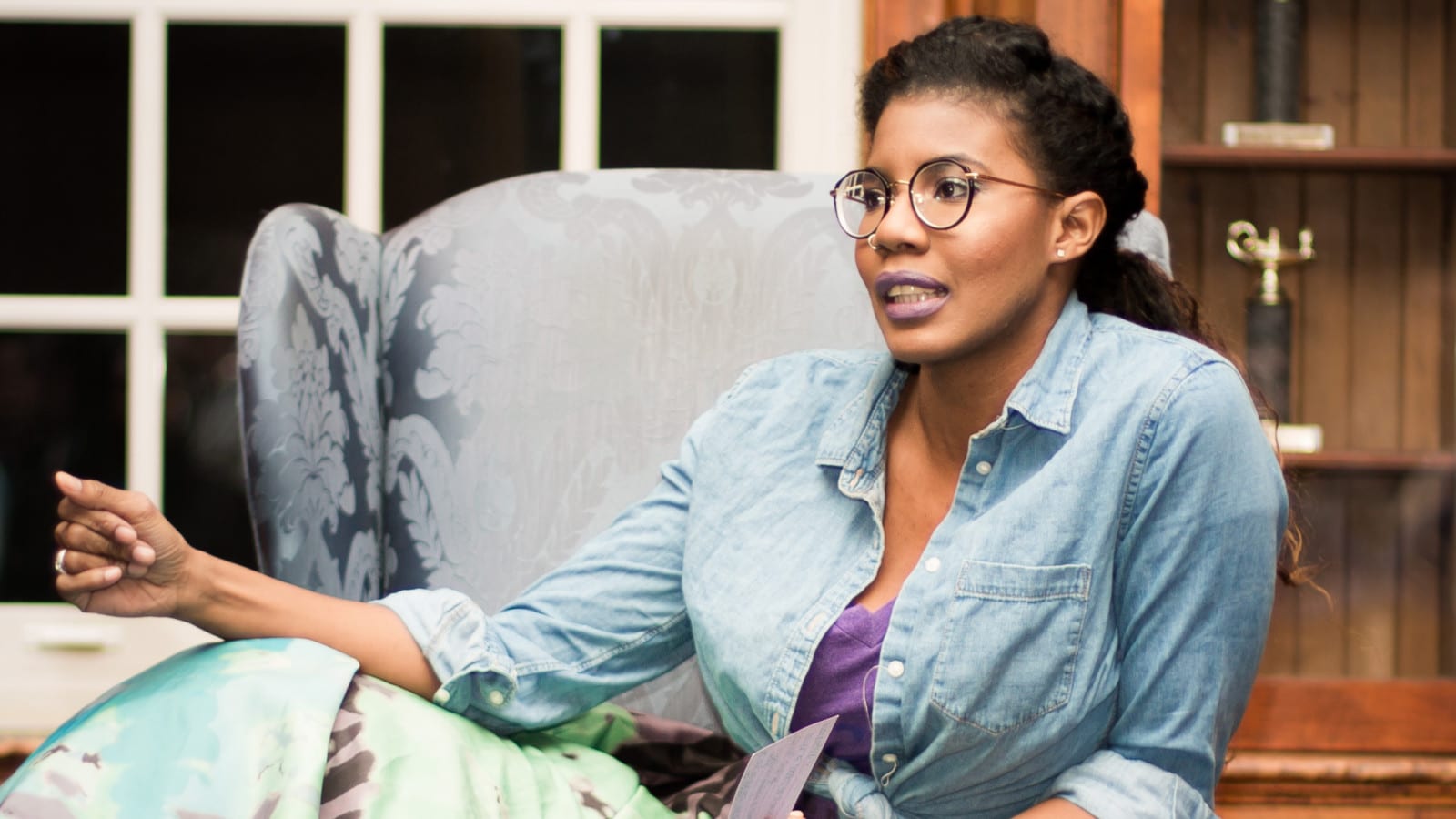In Nic Stone’s debut novel, the New York Times bestseller Dear Martin, the protagonist, Justyce, is an African-American 16-year-old high-achiever with his sights set on Yale University. He attends an elite prep school on scholarship, and he’s bumping against racism from fellow students. His skin color soon leads to encounters with police—and one exchange turns deadly. Justyce tries to make sense of it all by writing in a diary that takes the form of letters to civil rights leader Dr. Martin Luther King Jr. (hence, the title of the book).
“I thought if I made sure to be an upstanding member of society, I’d be exempt from the stuff THOSE black guys deal with, you know?” Justyce writes. “Really hard to swallow that I was wrong.”
For Stone, who was on campus this week as the last presenter in Williston’s 20th Writers’ Workshop Series, writing the book became an examination of whether the teachings of Dr. King still hold true. Her dynamic talk followed a dinner hosted by the Multicultural Student Union. She also taught a master class on writing while on campus.
Stone, the mother of two young boys, told the audience about the impetus for her beginning Dear Martin. As she watched the news cover a seeming-epidemic of police shootings of unarmed black citizens, it slowly dawned on Stone, the daughter of a police officer, that this could someday affect her family. “I realized my sons would grow up,” she said. She decided to turn the anger and sorrow that resulted from that awakening into a work of fiction.
As she began researching her story, she said she remembered back to the first book she read that was about race, To Kill a Mockingbird. Written by a white woman, Harper Lee, in 1960, the story leads to the conclusion that “racism is a problem,” Stone said during her talk. That was 58 years ago and although much has changed, a lot has not.
“I wrote this book because our country is a trash fire,” she said, explaining that issues of race persist, and that she wanted to explore that. “Books are the best way to say something without being interrupted.”
She urged students to look at the world around them. “Do you see problems? Do you see injustice? When you see problems, what do you do?”
One student replied, “Most of the time you think you can’t do anything about it.”
“I’m going to recommend that you guys write,” she said. “Explore it. Because, honestly, I do think you do have the power to make change.”
See more photos of Stone’s visit here.

